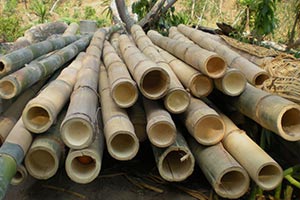Ethiopia's new wood and forest industry has a bright future.

Posted on :Tuesday , 27th September 2022
Millions of people can become wealthy by investing in forests.
The opportunity is obvious: Over the next 20 years, Ethiopia's need for wood and forest products is predicted to rise by 27%. More than half of the nation's population, or an estimated 57 million people, work full- or part-time in the forest industry, which now contributes 12.9% of the nation's GDP. More than 11 million rural families rely nearly entirely on wood for their food.
This number is anticipated to increase as the COVID-19 issue may put the jobs of an estimated 1.5 million Ethiopians, especially the country's urban poor. Many of them will go back to their rural ancestral homes, where they will require new employment prospects to survive. Fortunately, the government is on board and the forest industry can assist cover that gap.
The National Forest Sector Development Program (NFSDP) aims to help people manage tree nurseries, plant seedlings, conserve forests, and sell forest products, with the goal of creating 630,000 full-time jobs in rural regions. In Ethiopia's Climate Resilient Green Growth (CRGE) Strategy, which outlines a course for the nation to achieve middle-income status by 2025, the forest industry also plays a significant role. Protecting the remaining 17.35 million hectares of forest and raising the percentage of forest cover to 30% is essential to realising this aim.
Trees, Forests and Profits in Ethiopia, a new report from the Environment, Forest and Climate Change Commission (EFCCC) and World Resources Institute (WRI), shows how we can contribute to the achievement of these economic goals by sustainably managing trees on 310,000 hectares of new forest plantations and on 1 million hectares of state-owned and privately owned production forests. To establish those new plantations, a substantial private investment of 23 billion birr (USD 638 million) would be needed, but the project might provide a return of 69 billion birr (USD 1.91 billion), or three birr for every one spent.
The governments of Oromia and Amhara are utilising this chance through two commercial forestry operations. Through an out-grower programme, Oromia Forest and Wildlife Enterprise and Amhara Forest Enterprise work with smallholder farmers, resulting in employment creation and a yearly income of 364 million birr (USD 10.5 million) and 164 million birr (USD 4.5 million), respectively. Scaling up comparable businesses has huge potential. In addition to 190,000 hectares of state-owned plantations spread throughout several areas that are open for expansion or better management, the nation possesses roughly 26.8 million ha of potential land for new commercial forests.
Additionally, private business owners in Ethiopia are restoring land to generate income and relieve strain on remaining forests. They are developing sustainable value chains, green employment, especially those for women and young people, and dependable marketplaces that rural households may use to boost their earnings.
In Ethiopia, thousands of farmers cultivate bamboo, but many of them lack access to a production facility that might give them a consistent income from their crop. The Addis Ababa-based SA Bamboo Works, which was established by Addisu Hailu, is one of the few Ethiopian bamboo manufacturing businesses that cater to both domestic and foreign markets. The firm receives its raw bamboo from hundreds of individual farmers and cooperatives, has an average yearly revenue of USD 2.8 million, and employs 300 people in its furniture manufacturing. By retaining water in the soil and preventing erosion, the bamboo seedlings they plant also aid in the restoration of the land.
These companies are setting the bar for how to develop Ethiopia's sizable forestry sector into a viable economy that can advance the nation. What are they going to require to expand their work?
Ethiopia's new reconstruction economy has a bright future
Ethiopians have recently demonstrated a desire to plant trees and preserve forests. Now is the moment to work with them to turn that idea into an effective reality and create a thriving new forest economy.
Please Select an Option
-
Exhibiting
-
Visiting
-
Information

Expogroup
Expogroup is a full service exhibition organiser with over 28 years experience in International trade exhibitions. Our current portfolio includes 28 annual exhibitions from a diverse range of industries being held across the Middle East & Africa.
EXPOGROUP © 1996 - 2024 | Privacy policy
